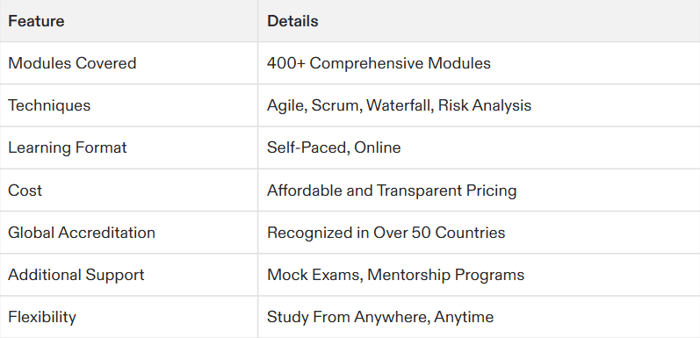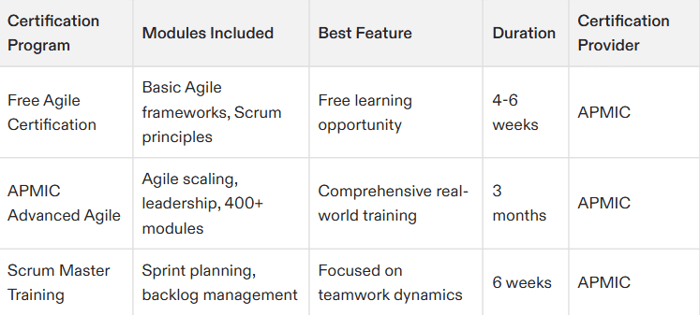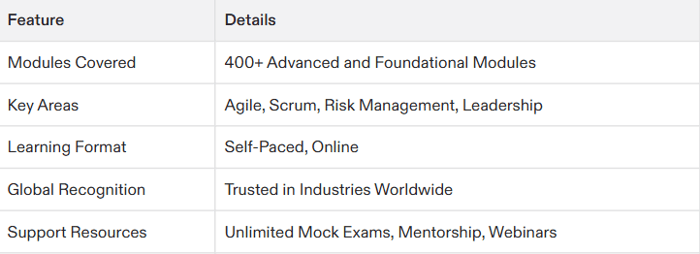Table of Contents
Are you ready to conquer the chaos of project management? Imagine wielding the mighty hammer of Thor but for managing timelines and budgets instead of fighting mythical beasts! Dive into our epic guide where we decode the secrets of becoming a certified project master. From boosting your career to wielding new tools and techniques, let’s embark on a quest to unlock the treasure trove of project management certification!
Why Pursue Project Management Certification?
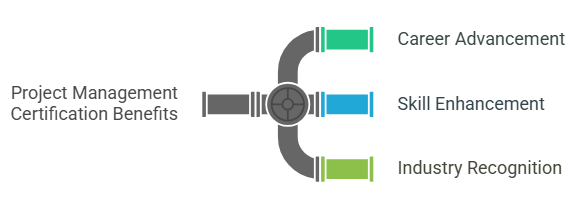
Project management isn’t just about tracking deadlines and resources; it’s about leading projects to successful completion with finesse and skill. Certification in project management can catapult your career to new heights, offering:
Career Advancement: Certified project managers are often first in line for promotions and leadership roles.
Skill Enhancement: Learn cutting-edge project management techniques that can transform your approach and outcomes.
Industry Recognition: Being certified adds a mark of professionalism and expertise that is recognized globally.
What Makes an Effective Project Management Training Program?

An effective project management training program is the cornerstone of a successful career in project management. Choosing the right program can dramatically influence your ability to manage projects efficiently and effectively. Here’s an in-depth look at what makes a training program stand out and why it matters.
Comprehensive Curriculum
A top-tier project management training program offers a comprehensive curriculum that covers a wide range of topics. These programs go beyond the basics of project scheduling and budget management to include advanced topics like Agile methodologies, risk assessment, and stakeholder management. They provide a deep dive into essential project management principles while also covering newer trends such as digital project management and the integration of project management software tools.
The best curriculums are designed to cater to both beginners and experienced professionals. They start with foundational knowledge and gradually progress to complex concepts, ensuring a solid understanding at every stage. This kind of structured learning helps in building a robust skill set that is applicable across various industries and project types.
Related Blog: The Top IT Project Management Certifications for 2025
Practical Learning Approaches
Theoretical knowledge is vital, but the real value of a project management training program often lies in its practical application. Look for programs that emphasize practical learning approaches, which can include:
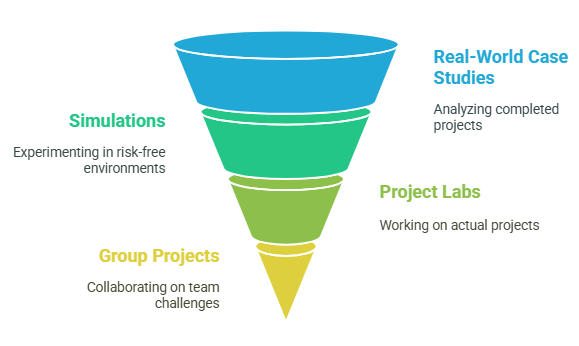
Real-World Case Studies: These allow learners to analyze completed projects, understand decision-making processes, and learn from the outcomes.
Simulations: Interactive simulations provide a risk-free environment to experiment with project management strategies and see the consequences of decisions in real-time.
Project Labs: Some programs offer lab sessions where learners can work on actual projects under the guidance of experienced instructors.
Group Projects: Collaborative projects that simulate real-world teamwork and communication challenges.
These practical elements are crucial as they enable students to apply what they’ve learned in a controlled, evaluative setting, which prepares them for real-life project management tasks.
Expert Instructors
The quality of instruction is another critical component of an effective training program. Instructors should not only be knowledgeable in project management but also possess real-world experience and the ability to teach complex concepts clearly and engagingly. Experienced instructors bring invaluable insights from their professional journeys, offering nuanced perspectives that textbooks alone cannot provide.
Related Blog: Project Management Certification Qualifications
Accessibility and Flexibility
In today’s fast-paced world, the accessibility and flexibility of training programs are more important than ever. Many professionals who pursue project management certification do so while managing full-time jobs and personal commitments. As such, the best training programs offer:
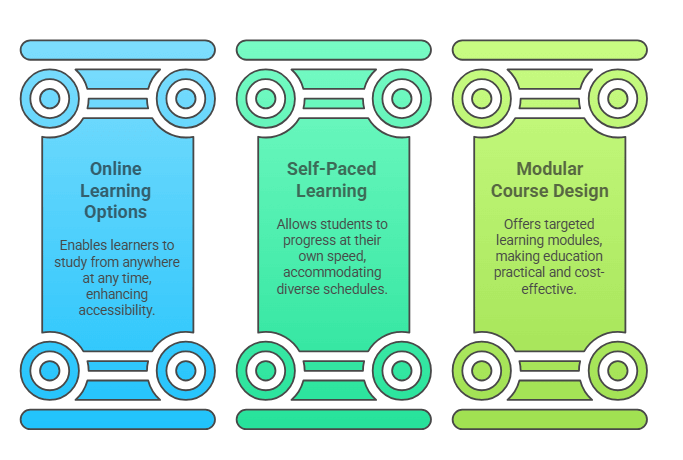
Online Learning Options: Programs that provide online courses allow learners to study from anywhere at any time, making it easier to fit education into a busy schedule.
Self-Paced Learning: This format lets students progress at their own pace, which is ideal for balancing work and study.
Modular Course Design: Being able to take specific modules relevant to one’s immediate career needs can be more practical and cost-effective.
Global Recognition and Accreditation
Ensure that the training program you choose is recognized globally and accredited by reputable project management organizations. Accreditation from bodies like the Project Management Institute (PMI) or the International Association for Project Management (IAPM) assures that the program meets high educational standards and that its certifications are respected worldwide.
Community and Networking Opportunities
A program that provides access to a community of professionals offers additional benefits. Networking opportunities, mentorship programs, and professional forums can significantly enhance learning experiences and career prospects.
Understanding the Costs: Is It Worth the Investment?
Investing in your education is a big decision. Project management training programs can vary widely in cost, ranging from $500 to over $5,000. However, the return on investment can be substantial, with many certified professionals seeing salary increases and more lucrative job opportunities.
Related Blog: Best Entry Level Project Management Certification
Top Benefits of Completing Your Certification
Obtaining a project management certification can dramatically transform your career trajectory. Here’s how:
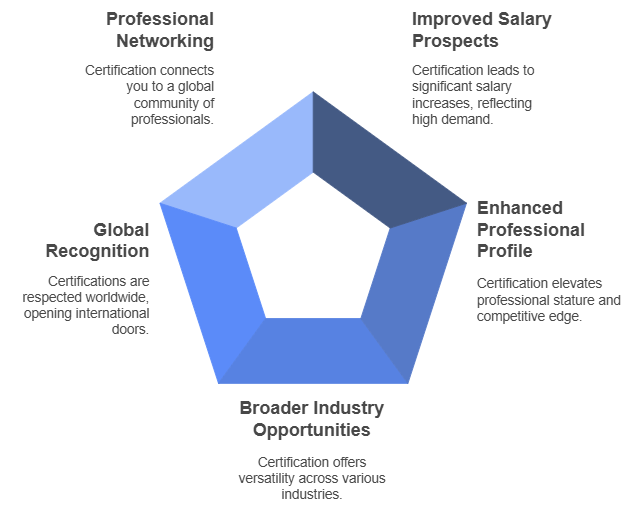
Improved Salary Prospects
Certification in project management isn't just a credential; it's an investment in your financial future. On average, certified project managers earn 20-30% more than their non-certified counterparts. This significant increase is seen across various industries globally, reflecting the high demand and respect for certified professionals. Organizations recognize the added value these individuals bring to the table and are willing to compensate them accordingly. Furthermore, the earning potential escalates as you gain more experience, making this a lucrative long-term career path.
Enhanced Professional Profile
A project management certification does more than just polish your resume—it elevates your professional stature in the eyes of employers and peers alike. This certification is a testament to your dedication to professional growth and your ability to handle challenging and complex projects. It signals to current and prospective employers that you possess a robust understanding of project management principles such as scope, time, cost, and quality management, making you a valuable asset to any team. Moreover, being certified can give you a competitive edge in job interviews, making you more likely to secure leadership positions and high-stakes projects.
Broader Industry Opportunities
One of the most compelling reasons to pursue a project management certification is the versatility it offers. With this certification, you’re not just limited to one sector; instead, you have the flexibility to transition across a variety of industries that rely on project management. From IT and software development to construction, healthcare, and even entertainment, the fundamental skills of project management are in high demand. This ability to pivot across sectors not only enhances job security but also enriches your professional experience, exposing you to different challenges and learning opportunities.
Global Recognition
Project management certifications such as PMP® (Project Management Professional) or PRINCE2® are recognized and respected worldwide. This global acknowledgment ensures that your professional credentials are valid and valued, no matter where your career takes you. Whether you're working in the United States, Europe, Asia, or anywhere else, a recognized certification can open doors to international job markets and opportunities for working with multinational corporations.
Professional Networking Opportunities
Being certified also connects you with a global community of other certified project managers. This network can be invaluable as you seek guidance, job opportunities, or even collaboration on projects. Professional associations, such as the Project Management Institute (PMI), offer vast resources for networking, continuous learning, and career development, which are accessible exclusively to members.
Confidence and Credibility
Lastly, earning a project management certification boosts your confidence in your professional abilities. It provides a solid foundation of knowledge and competencies that prepares you to take on and succeed in project leadership roles. This confidence is matched by the credibility it affords you in the eyes of colleagues, stakeholders, and clients, who will trust your ability to guide projects to successful conclusions.
Facts About Project Management Training
Historical Context: Did you know that modern project management techniques evolved from the U.S. military’s methods in the 1950s?
Global Influence: A survey reveals that over 70% of high-performing projects are led by certified managers.
Technological Integration: The introduction of AI in project management has reduced budget overruns by up to 25%.
Certification Popularity: The PMP certification is recognized in over 80 countries and is often a prerequisite for senior roles.
Soft Skills Development: Beyond hard skills, PM training significantly enhances negotiation and conflict resolution abilities.
AI and Automation in Project Management
Impact on Personal Life: Effective project management skills can improve personal life organization, from planning weddings to family finances.
Hybrid Project Management Methods
Eco-Friendly Projects: There's a rising trend in using project management for sustainability projects, aiming to reduce carbon footprints.
Youth Programs: Some high schools have begun introducing project management fundamentals to students.
Cultural Competence: Project managers with international training are better equipped to handle cross-cultural teams.
Innovative Software: The latest PM software now includes mood tracking features to gauge team morale and predict project risks.
Final Thoughts and Call to Action
Embark on your journey to becoming a globally recognized project leader with APMIC’s top-tier Project Management Certification program. With a curriculum designed for real-world application and success, there's no better time to advance. Ready to project your career to new heights? Visit https://app.apmic.org/ and discover how our certification can be the cornerstone of your professional evolution.
FAQs
What is the best certification for a project manager?
The PMP certification is highly regarded globally, offering extensive curriculum coverage and recognized industry credibility.
How long does it typically take to complete PM certification training?
It ranges from 8 to 24 weeks, depending on the program's depth and your pace.
Can I balance PM training with a full-time job?
Yes! Many programs offer flexible, self-paced options tailored for working professionals.
Are there financial aids available for PM training?
Scholarships and employer sponsorships are common. Research potential funding options through training providers.
How does certification impact a project manager's salary?
Certified project managers can see salary increases from 20-30%, reflecting their enhanced skills and marketability.
What are the prerequisites for enrolling in a PM certification course?
While requirements vary, most programs recommend having some level of project handling experience.



